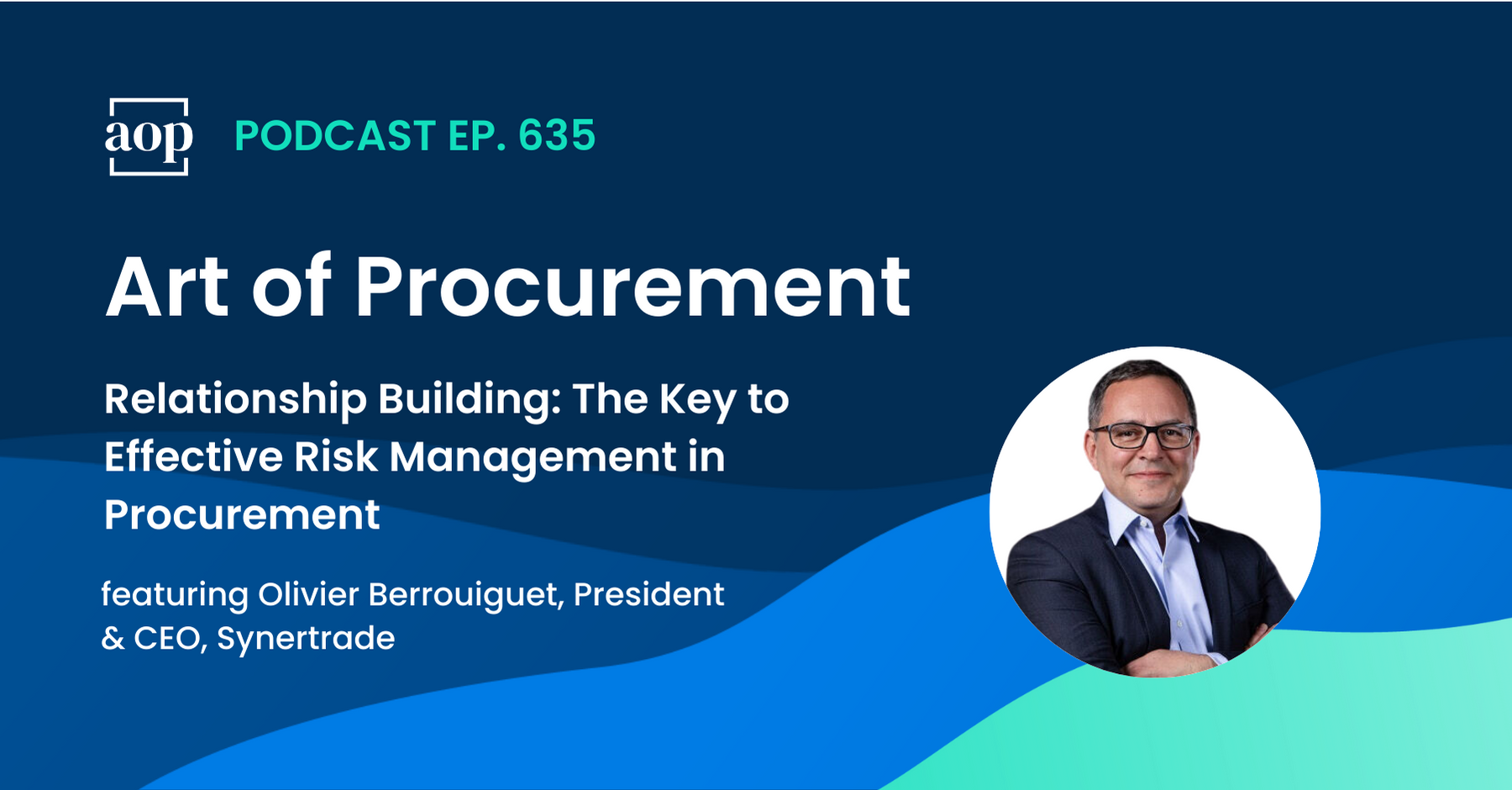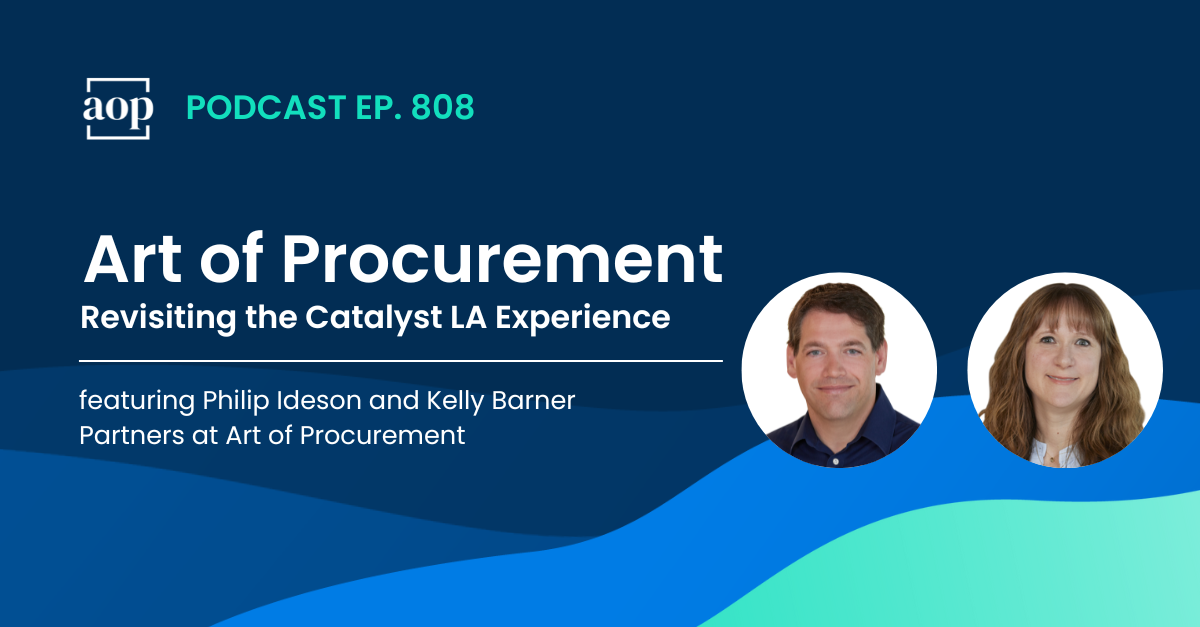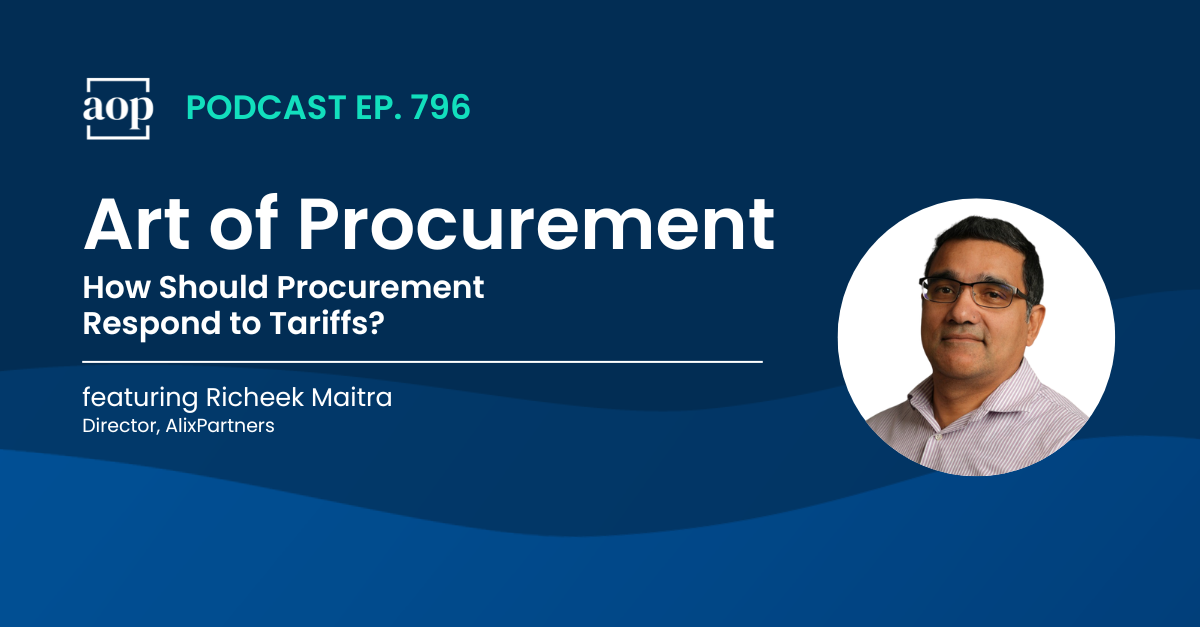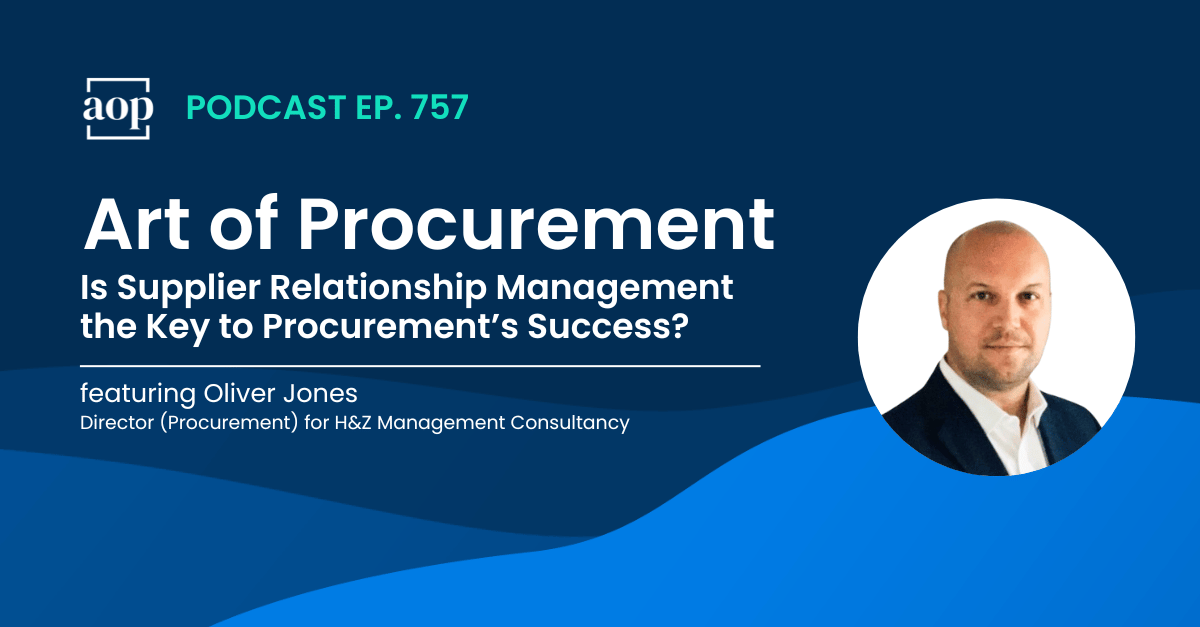3 min read
Relationship Building: The Key to Effective Risk Management in Procurement
Philip Ideson : October 15, 2023

“You need to know your suppliers, what they can and what they can’t do, and what they’re ready to do on top of the relationship you have every day. In an unstable supply chain, you need to invent new rules.” – Olivier Berrouiguet, President & CEO, Synertrade
In recent years, procurement has had a sense of urgency about its approach to risk management in response to a global supply chain that is increasingly defined by volatility, insecurity, and strain. The pressure of managing risk for mid- to large-size enterprises in an unpredictable landscape keeps procurement on their toes and often in “reactive” mode. But putting out fires can come at the expense of building holistic, long-term risk management strategies that strengthen the supply chain and create a compounding effect of security, stability, and profitability.
In a recent podcast episode, Philip Ideson talked with Olivier Berrouiguet, President and CEO of Synertrade, about one of the most often overlooked, yet highly important, components of modern-day risk management: supplier relationships.
Relationship management, explained Olivier, can have a direct impact on both the short- and long-term ability of procurement to effectively manage risk, but it is particularly important for taking a more proactive approach that allows for solid long-term planning and preparedness.
Here are some of the key considerations for prioritizing relationship building and baking into procurement’s strategic approach to risk management, as inspired by the insights from the episode:
The relationship management-risk management connection
In volatile global supply chains, it is important for procurement to have strong relationships with suppliers who can help their organization navigate challenges and defend against risk.
“The main lesson here is you need to know your suppliers,” said Olivier. “We need to adapt our strategy by knowing our suppliers a lot better, not only for the financial or ESG aspects, but for their ability to be flexible and innovative and to propose alternatives.”
Understanding how your suppliers react to risk and what their particular capabilities for support are when problems arise can only come from having already established a strong relationship and partnership approach.
This is particularly true, said Olivier, in industries where companies work with the same supplier network for decades. In those cases, having a strong focus on relationship management isn’t just a nice-to-have, it’s imperative for predicting and managing risk.
Benefits to making relationship building a priority
In addition to developing strategic partnerships with suppliers who you know will be there to support your organization when risk is introduced, there are some other key ways this approach can benefit procurement:
A more proactive approach to risk assessment:
Building strong relationships with suppliers grants procurement professionals a privileged peek into their inner workings. This includes not only understanding their financial health but also aspects like production capacity or quality control measures, which helps procurement assess potential risks more accurately and ensures they are well-prepared for any disruptions that might occur.
A foundation of trust and collaboration:
Trust forms the foundation of any successful relationship, and supplier relationships are no exception. A strong, trust-based connection makes it easier for procurement and suppliers to partner effectively on risk mitigation strategies. This collaboration can take various forms, like negotiating early warning systems to identify potential supply chain disruptions. This type of proactive collaboration can be a game-changer in risk management.
Better detection of early warning signs for risk:
Building solid relationships with suppliers is like having a network of ‘informants’ within your supply chain. When you’re close to your suppliers, you’re more likely to spot early warning signs of potential issues. For instance, if a supplier is undergoing financial difficulties, they might delay deliveries or compromise on quality. Recognizing these signals helps procurement to take a more proactive approach from the outset and make a case for corrective actions before these issues snowball into major problems.
How to build stronger relationships with suppliers with risk in mind
Relationship management as a vehicle for risk management should be approached with a strategic lens, said Olivier. “This is something that we see emerging and it is absolutely adding value to have an organized relationship with suppliers in order to address those supply chain risks.”
While relationship building benefits from strong one-on-one connections and well-aligned company cultures, creating a strategic framework for procurement to build those relationships with suppliers is key.
In the process of building this framework, procurement should keep in mind best practices around relationship management like:
Frequent and Transparent Communication: Regular and open communication with suppliers is paramount. Discuss performance expectations, risk management strategies, and innovation opportunities openly and honestly. As Olivier said, “know your suppliers” and know them well, so you can understand their ability to support your organization when risk pops up.
Be a Supportive Partner: Supporting your suppliers goes a long way and creates a true partnership that can scale and sustain over time. This includes providing clear instructions, being transparent about expectations (especially as they change), ensuring timely payments, and actively assisting them overcome challenges they may encounter.
Embrace Collaboration: Build mutually beneficial relationships with suppliers by frequently sharing information, collaborating on risk management strategies that benefit both sides, and working together to improve overall quality and efficiency. This will have a compounding effect throughout the supply chain and put procurement in a proactive position.
Be Process-Driven: A process-driven approach to relationship management can simplify the back-and-forth and improve procurement-supplier interactions, said Olivier. “These relationships have to be managed through processes first, then systems,” which creates a strong foundation for a long-term partnership that can give procurement a holistic view of the risk landscape over time.
By recognizing the valuable connection between relationship management and its impact on risk management, procurement can meet the needs of the day but also start to build a more proactive approach that considers long-term supply chain stability and risk planning.
Listen to the Conversation
Subscribe to Art of Procurement
Apple | Stitcher | iHeart Radio | Email




